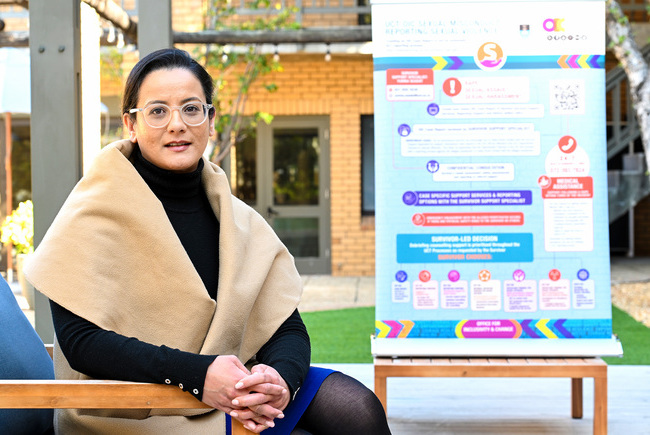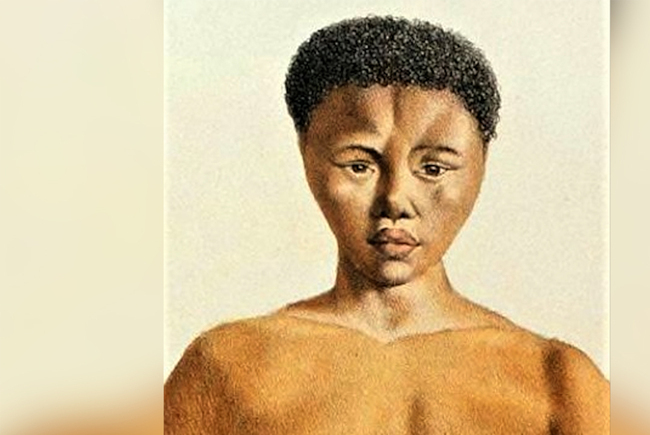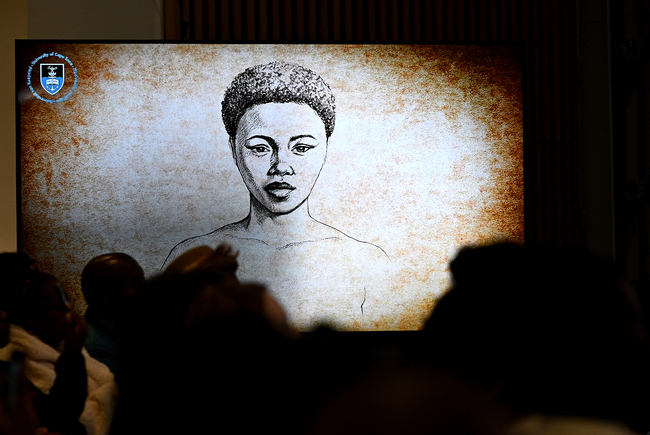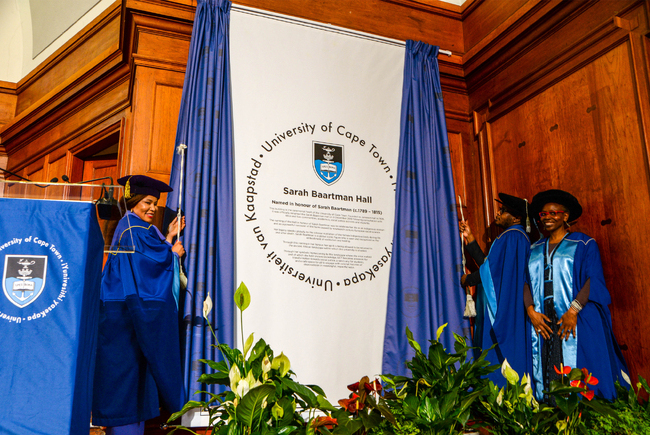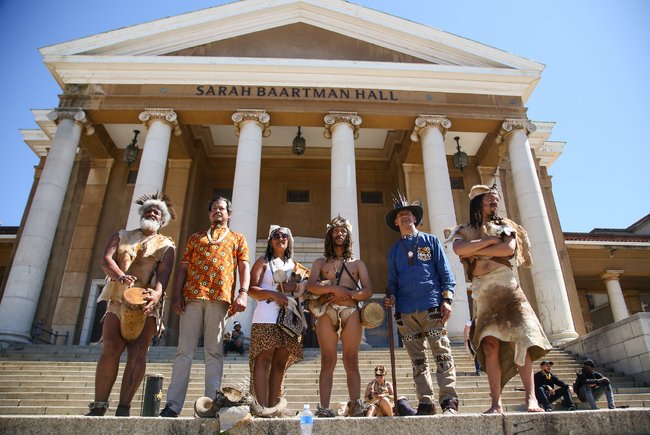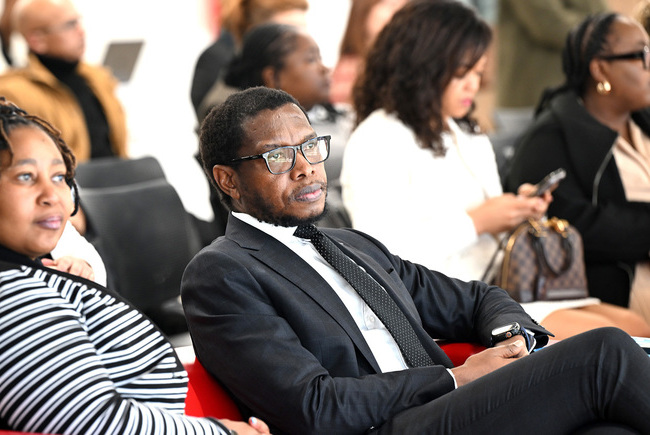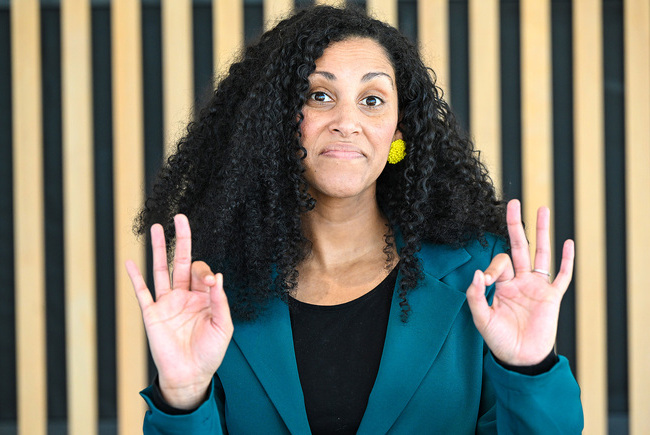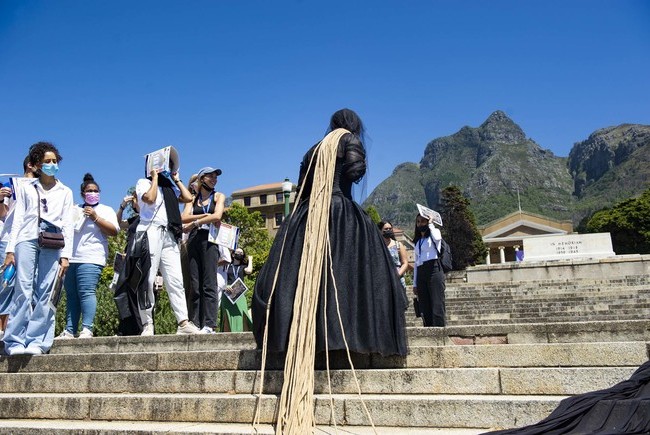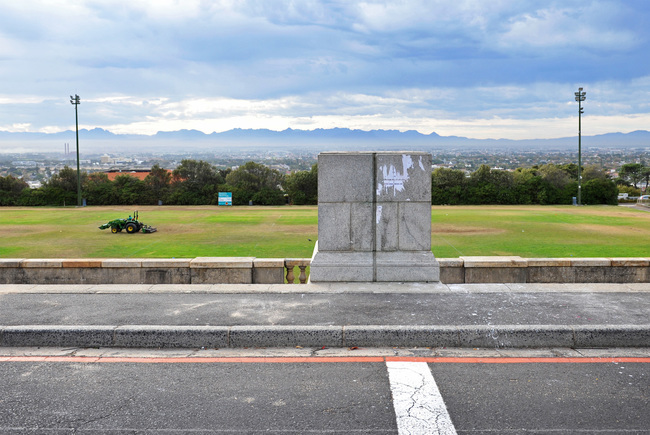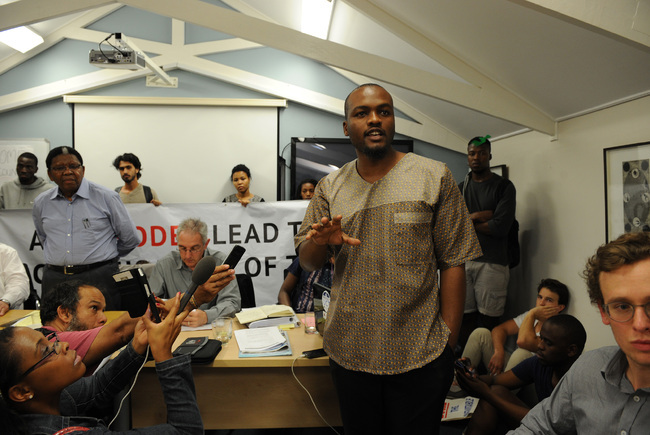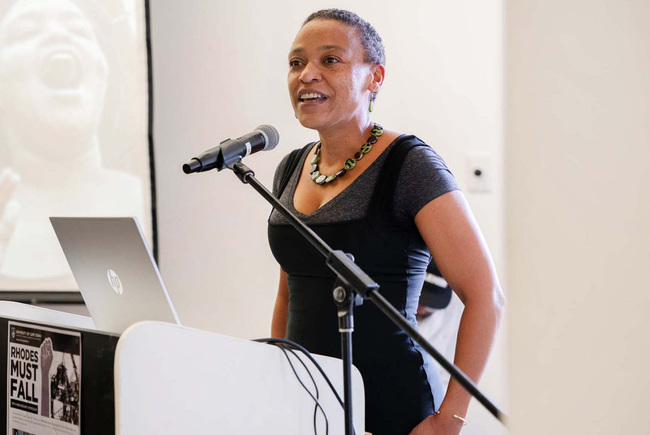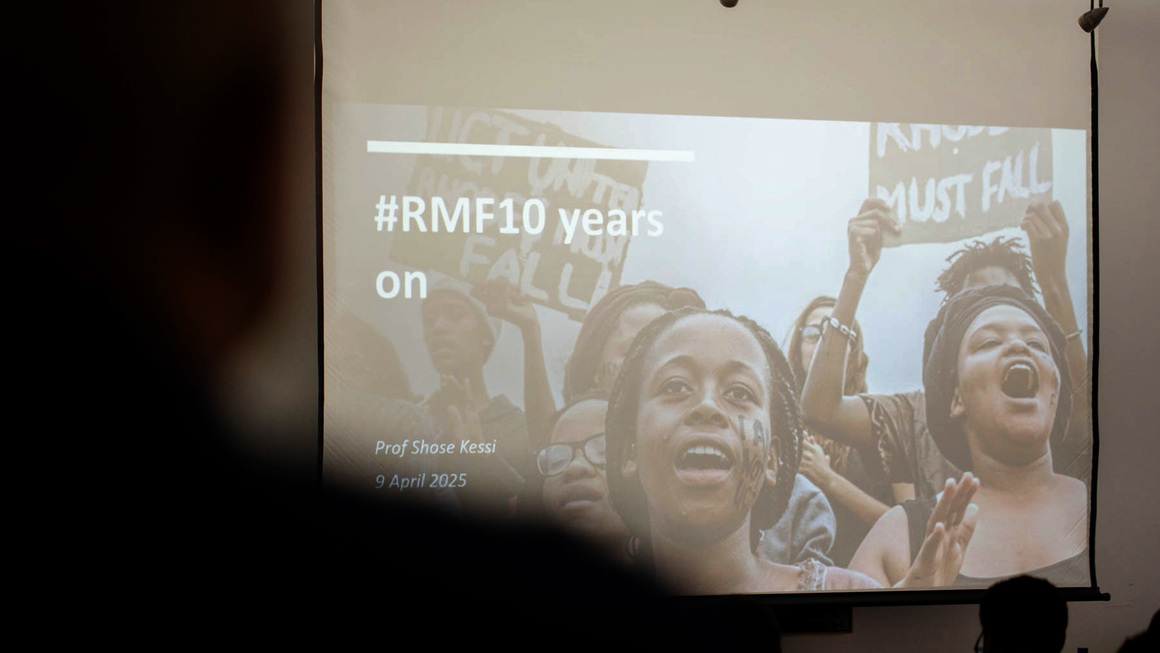The art of transformation
12 May 2025 | Words Staff writer. Photos Lerato Maduna.During the 2015 Rhodes Must Fall protests, students raised concerns that the University of Cape Town’s (UCT) art collection lacked representation and did not reflect institutional transformation. In response, UCT formed the Artworks Task Team in 2016, and the Works of Art Collection (WOAC) committee has since been working to diversify the collection and better represent South Africa’s cultural diversity as part of broader efforts toward redress. Among these was “The Fire This Time”, conceived by writer-researcher and curator Pamella Dlungwana, which reflects on sparks in the university’s ongoing aspiration for transformation at UCT. The title evokes the many fires (both material and metaphorical) that continue to shape the Sarah Baartman precinct and the university. This work is part of the overall Transformation work at UCT over the past ten years, as reviewed by UCT News
For more artwork on transformation, information about the WOAC’s upcoming events and exhibitions, visit the collection’s website.
 This work is licensed under a Creative Commons Attribution-NoDerivatives 4.0 International License.
This work is licensed under a Creative Commons Attribution-NoDerivatives 4.0 International License.
Please view the republishing articles page for more information.
Ten Years of Transformation at UCT
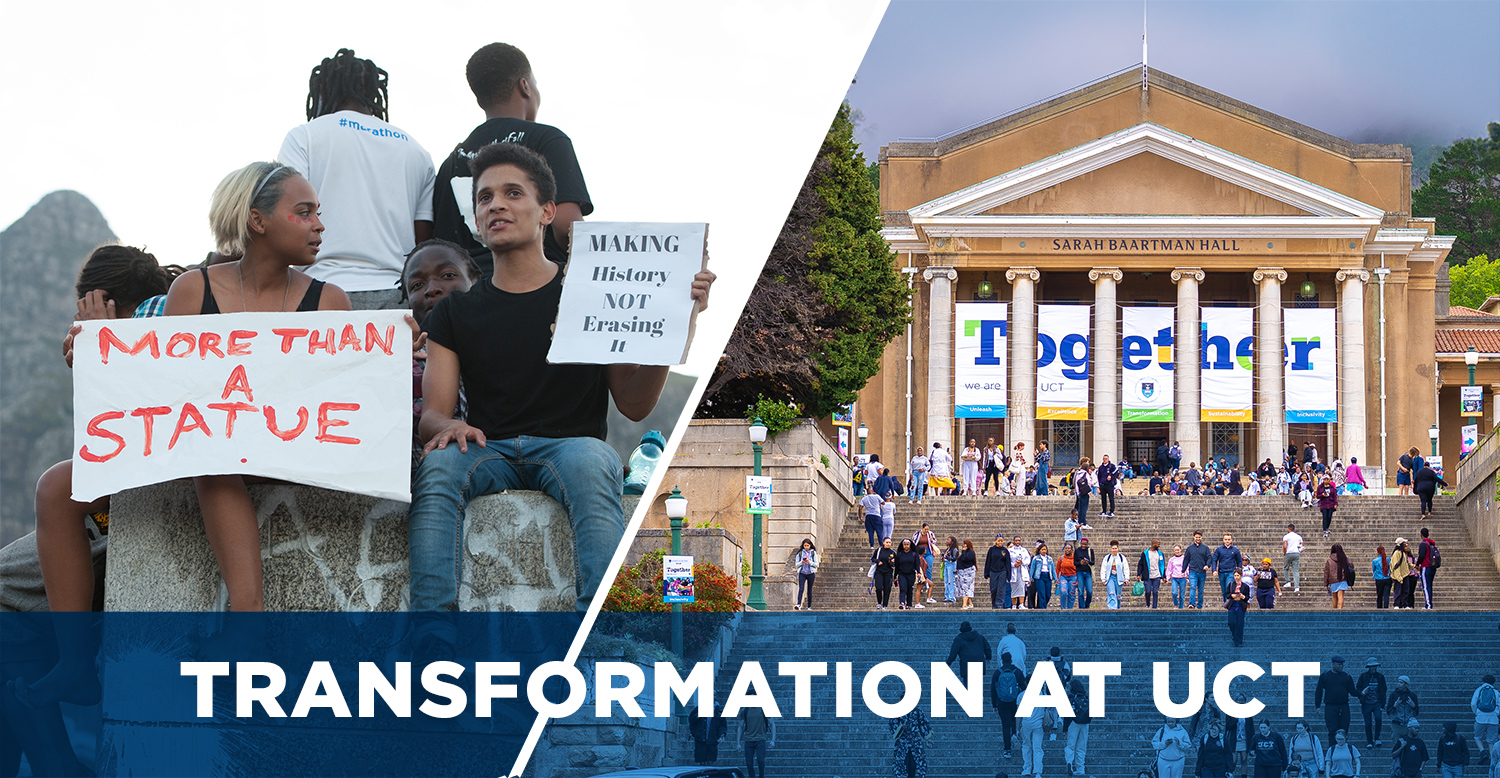
The University of Cape Town’s (UCT) Vision 2030 strategy’s goal is to unleash human potential in pursuing a just and fair society. This vision is built on three core pillars: sustainability, excellence, and transformation. Aligned with this strategy, UCT has implemented a range of transformative initiatives to foster a more inclusive, non-discriminatory academic environment. These efforts reinforce the university’s commitment to becoming a place where all individuals feel respected, valued, and have a true sense of belonging.

The Rhodes Must Fall movement is one of the student-led societal uprisings that can rightfully claim to have reignited decolonial discourse and scholarship in the African continent and beyond.
18 Mar 2025 - 8 min read RepublishedIn the news

UCT Vice-Chancellor Prof Mosa Moshabela outlines the role of universities in South Africa’s future.
24 Jul 2025 - >10 min read RepublishedVideo
“... that was a really good moment and it changed a lot of things... the impact of that movement at UCT has been really phenomenal.”
– Prof Shose Kessi, Dean of Humanities
















